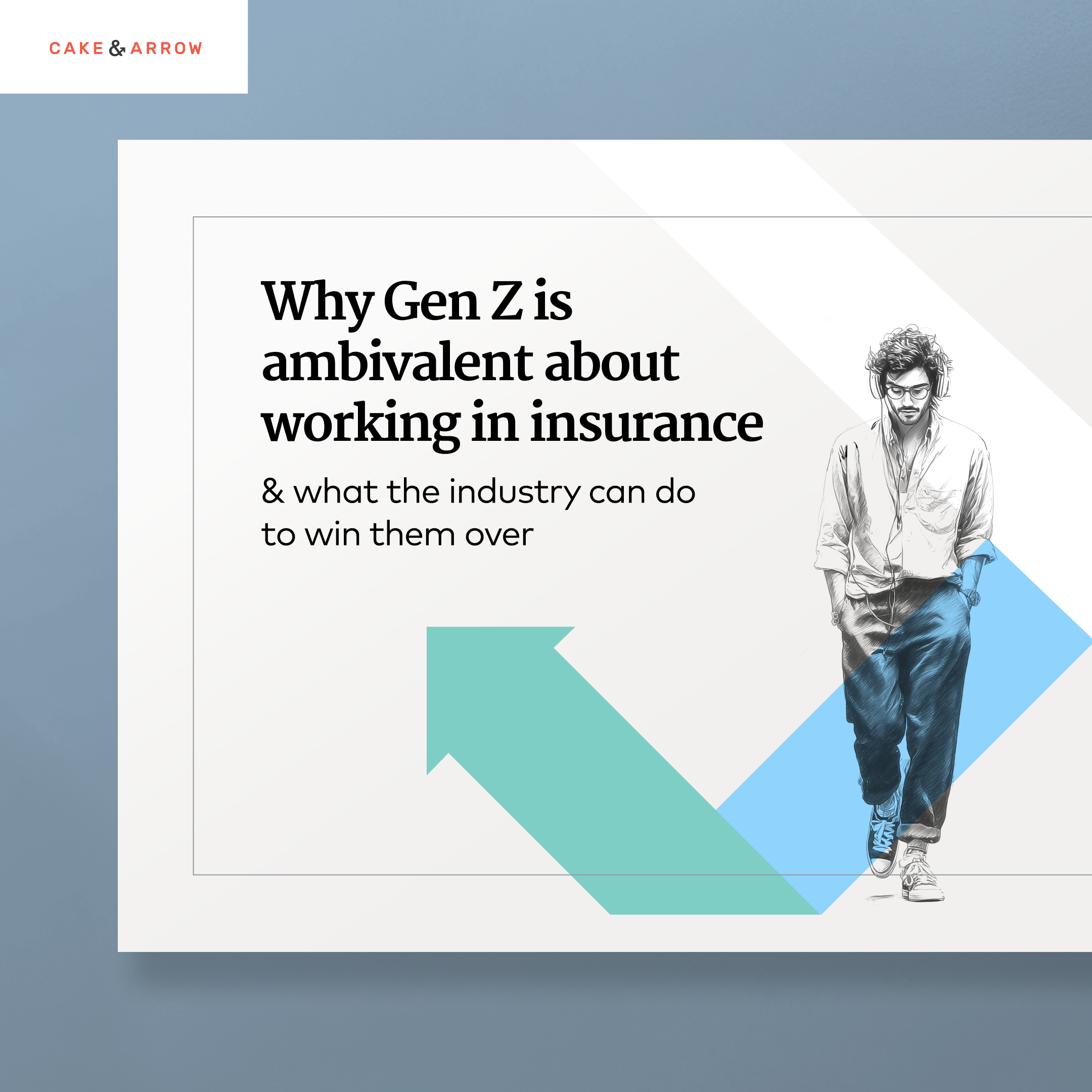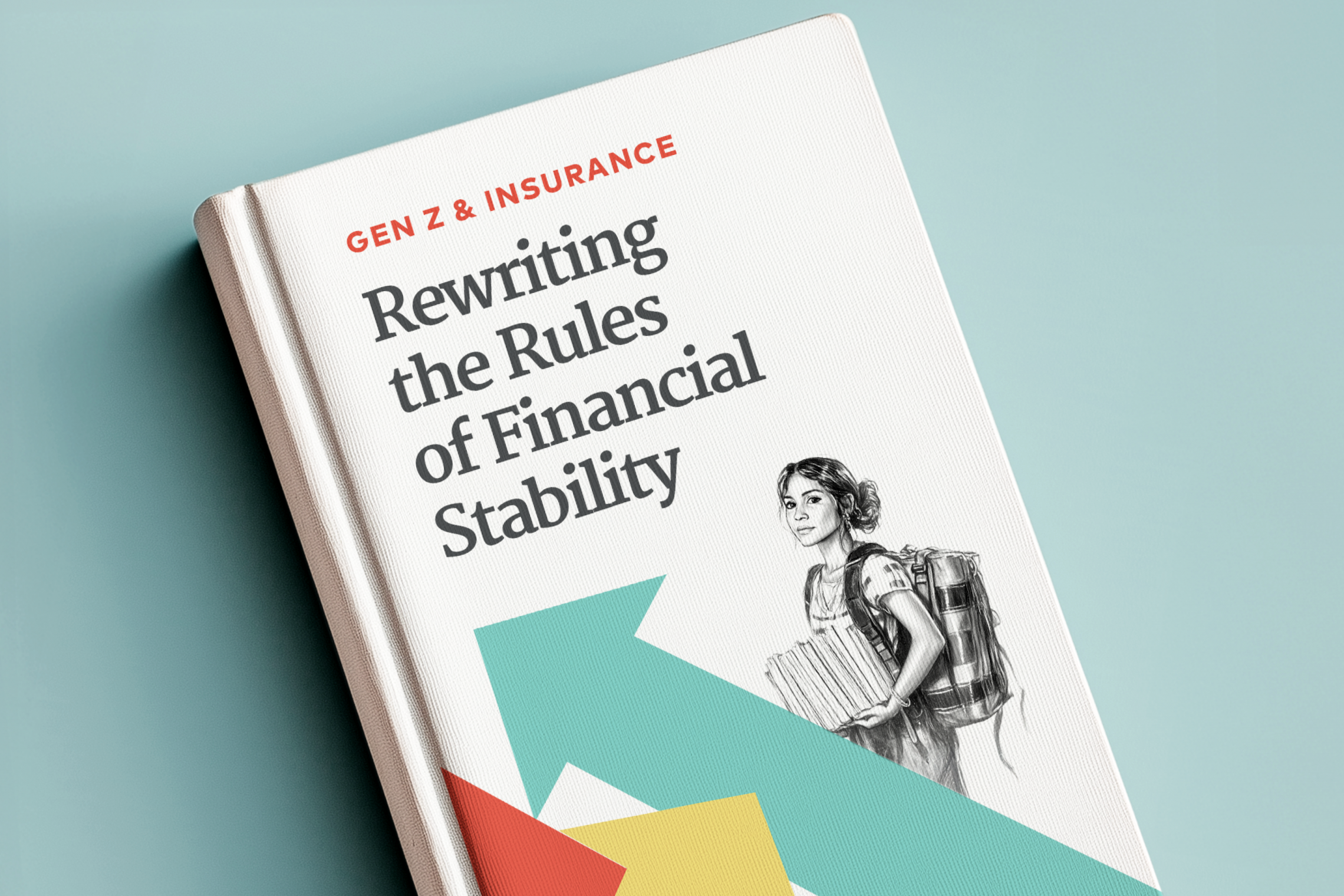
If you work in insurance, you’ve likely heard the alarm bells. Over the past several years, media outlets, analysts, and industry leaders have been beating the drum, warning about a massive talent exodus that’s no longer on the horizon; it’s here.
According to the U.S. Bureau of Labor Statistics, by 2026—just a few weeks away now—400,000 insurance professionals will have left the industry. Many of these workers are seasoned veterans reaching retirement age, taking decades of institutional knowledge with them. To some, this sounds like an existential crisis. To others, a long-overdue shake-up.
But the narrative isn’t clear-cut. The rise of artificial intelligence has complicated things. Some predict that AI could replace up to 41% of the insurance workforce, raising the specter of a future where algorithms, not people, underwrite policies, handle claims, and serve customers—potentially solving one problem while creating another: an industry even more detached from the human needs it was built to protect.
Still, for all the optimism around automation, one fact remains: the industry’s human talent pipeline is drying up, and Gen Z isn’t rushing to refill it.
Gen Z gives the insurance industry the cold shoulder
Our recent research found that
- 79% of Gen Z have never considered a career in insurance
- 49% say they have no interest in working in the industry, and
- 14% say there’s nothing anyone could say or do to convince them otherwise.
Their reasoning reveals not just a recruiting challenge, but a deeper brand and identity problem for the industry. So what’s behind this ambivalence, hostility even, toward working in insurance? Below are four reasons Gen Z doesn’t want to work in insurance.
Report
New research with Gen Z reveals their ambivalence about working in insurance and explores how the industry can modernize—from internal tools to more dynamic career paths—to better connect with Gen Z talent.

1. Gen Z can’t see themselves in insurance
When asked to describe what a job in insurance looks like, most Gen Z participants drew a blank—or imagined call centers and cubicles. “I just don’t want to be on the phone all day in a cubicle being yelled at by some random person,” said Tekalegn, 20.
Few could see how their own interests or skills might fit in. But when presented with possibilities—roles tied to sustainability, innovation, or technology—they became more open.
As one participant said, “If there were insurance roles tied to things I’m more interested in, like sustainability, I’d be into that. But if you asked me straight up, ‘Is insurance where you want to work?’ I’d say no.”
The industry has a storytelling problem. It hasn’t connected the dots between what it actually does and what Gen Z values.
2. Gen Z sees insurance as cold, calculating, and even unethical
When asked if they agreed with the statement “Insurance companies will do whatever they can to deny people’s claims,” eleven out of twelve participants said yes. That perception matters. It’s not just a barrier to customer trust, but to talent.
Gen Z doesn’t want to work for an industry they view as exploitative or dishonest.
“If I knew I could actually help people—not just, you know, deny claims—I might consider it. But I highly doubt any insurance company is really fair and equitable,” said Charles, 18.
While Gen Z isn’t necessarily chasing passion jobs, they do want work they can be proud of. Ethical credibility is non-negotiable.
3. Gen Z thinks insurance is boring
When asked what they thought a day in the life of an insurance job might look like, most came up with responses like, “paperwork” or “spreadsheets.”
One research participant put it this way: “I think I’d be decent at it, but I definitely don’t think I would enjoy it,” said Zoe, 24.
To Gen Z, who value creativity, impact, and flexibility, insurance looks like a dead end. The challenge isn’t just to modernize the work, but to make it feel alive and meaningful.
4. Gen Z see insurance as rigid and inflexible
When it comes to work, Gen Z wants autonomy, mobility, and merit-based advancement. They crave environments where innovation is rewarded, not stifled.
“I’m looking for a workplace that’s inclusive—where everyone can speak, even if you’re younger or less senior. A culture without blame, where you’re encouraged to try new ideas. That’s not what I imagine insurance to be like,” said one participant.
Only 16% of Gen Z say they want to work at a large company, while over 50% dream of freelancing or starting their own business. For many Gen Z, traditional corporate hierarchies are a nonstarter.
So what can the industry do?
The data paints a grim picture—but not a hopeless one. While 14% of Gen Z are truly unreachable, that means 86% are still persuadable. In fact, our survey also found that 30% say they are open to a career in insurance but haven’t explored it.
That’s a huge opportunity. But earning Gen Z’s interest—and their trust—will require more than recruiting campaigns or new perks. It will take a fundamental reimagining of what it means to work in insurance: what the industry stands for, how it operates, and the kinds of roles and cultures it creates.
Our new research points to a path forward—one where insurers can reframe the narrative, rebuild credibility, and create the kind of meaningful, flexible, and purpose-driven careers Gen Z actually wants.
Winning Gen Z over
Maybe the industry isn’t in crisis at all. With AI poised to transform underwriting, claims, and customer service, some see a future where automation takes on the tedious, repetitive, and often contentious parts of the job—the paperwork, the phone calls, the manual processes—freeing people up to do work that actually makes an impact. Rather than replacing the workforce, AI could reshape it, allowing the next generation to step into roles that demand creativity, empathy, and problem-solving—exactly the kind of work Gen Z says they want.
.To dig deeper into what Gen Z really wants from work—and how insurance can evolve to meet them there—join our upcoming webinar, Making Work in Insurance Work for Gen Z. Register here.


